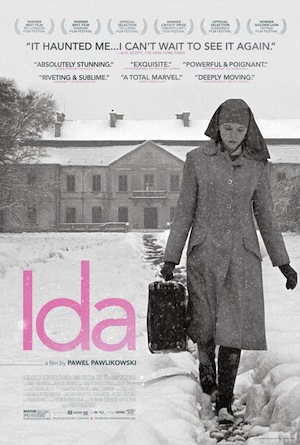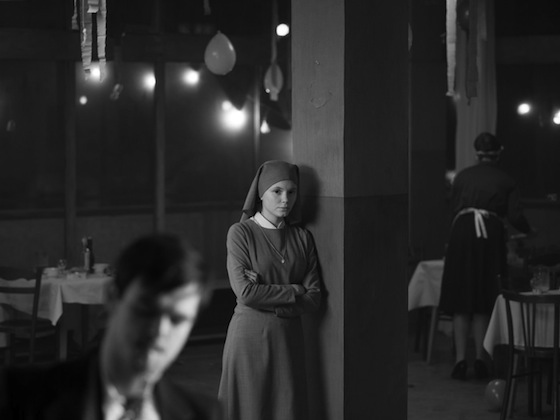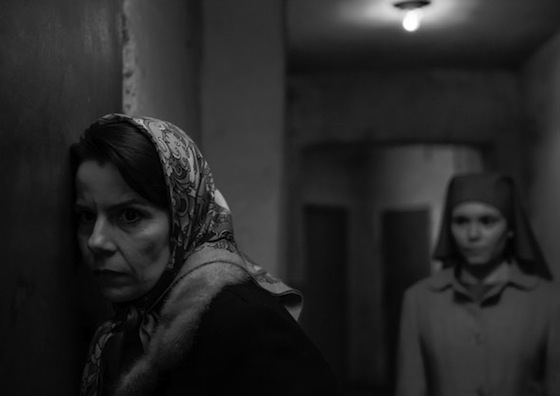This movie review of Ida appears on Lawrence.com.
There is a stigma associated with foreign films, especially ones that are shot in black and white and set in a historical period that most Americans are unfamiliar with: That they are long and boring and nothing ever happens.
I’ll be the first to admit it: It’s hard to get psyched about seeing a movie about an orphaned young woman getting ready to take her vows in a convent in early 1960s Poland.
But director Pawel Pawlikowski’s Ida, now playing at Liberty Hall, is an 80-minute road-trip movie filled with plenty of plot and surprising revelations, not to mention fascinating lead characters who couldn’t be more different from each other.
The chaste and sheltered 18-year-old title character (Agata Trzebokowska) is a bit of a blank slate, wearing her poker face at all times and holding tightly to her teachings. Her world is turned upside down following the news that her real name is Ida, not Anna, and that she’s Jewish and her parents were killed during World War II.
It’s her one known relative Aunt Wanda (Agneta Kulesza) who delivers this bomb, and she relishes the moment. An angry former prosecutor for Poland’s Communist party, “Red Wanda” now spends time assuaging her guilt with booze and one-night stands.
Like everything else in Ida, the complicated social and political backdrop of post-war Poland is filled in naturally as the movie progresses. There’s no onscreen titles or omniscient narrator to explain the film’s context and setting. It’s easy enough to glean this information from the complicated feelings of its characters.
What is fascinating is how Pawlikowski reveals so much by simply sticking with Ida and Wanda and acutely observing their behavior.
The visual strategy is as striking as Pawlikowski’s efficient storytelling. Shot in the square aspect ratio of yesteryear, it has a rigid quality that reflects Ida’s upbringing.
Cinematographers Ryszard Lenczewski and Lukasz Zal employ a camera that’s eternally still, and often keeps its subjects smaller in the frame or partially obscured, as if some larger force were bearing down on them. The soundtrack is austere as well, featuring music that only occurs in the reality of the film, save for the quietly powerful last shot.
Ida is a study in contrasts, from its stark black and white presentation to its diametrically opposed characters, each of them representing aspects of their country at a complicated juncture.
A dark cloud hangs over Poland in the film. The population is haunted by the recent past, and Wanda’s resentful attitude is obvious. (Kulesza is a particular standout certainly worth remembering come Oscar time.) Ida represents the country’s tough road forward, confronting not only her family history and everything she’s been taught but also modernization and shifting social mores.
If the movie still sounds a little too much like doing your homework, it’s not. You’ll just have to trust me.











Comments on this entry are closed.